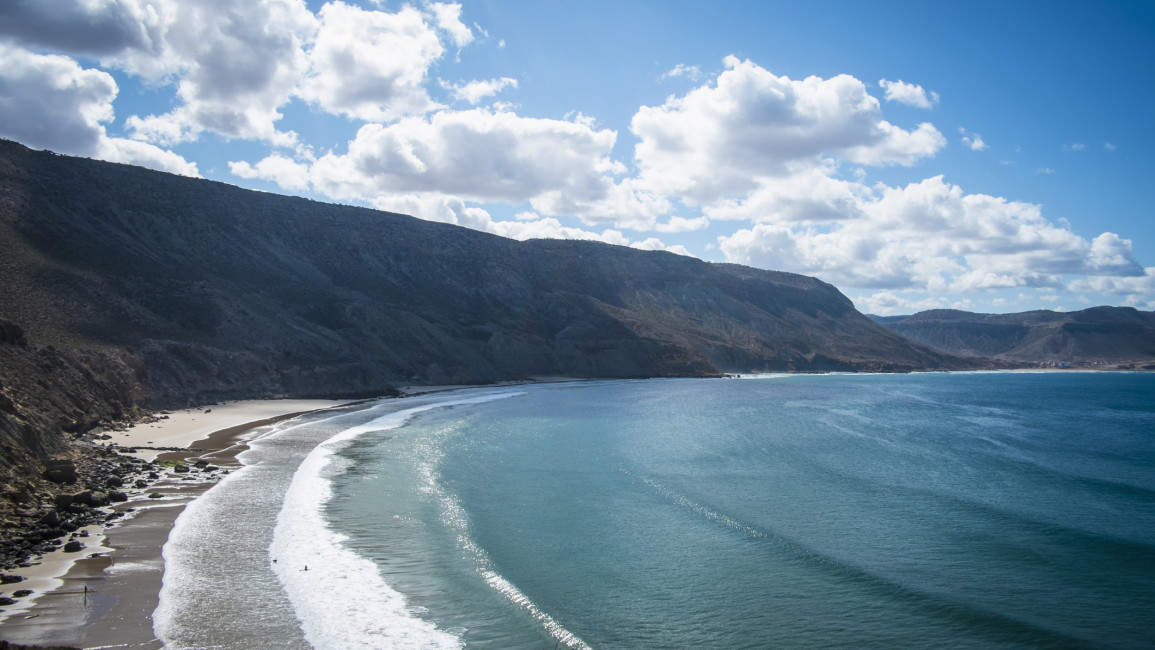Morocco demolishes earthquake-hit Amazigh village over 'illegal buildings'
In Morocco, authorities have issued a directive to demolish an Amazigh village, Imsouane, which had barely recovered from the September earthquake due to the illegality of its structures.
"On Wednesday, they gave us 24 hours to evacuate Imsouane. Where will we go? Our jobs and lives are here," said Ahmed, a surfing teacher working at the village.
On Thursday, 19 January, bulldozers were driven inside Imsouane, a coastal village two hours away from Agadir, and started the destruction process amidst a large security presence.
— psyche (@talassinn) January 19, 2024
Four days after the start of the destruction, the residents continue to gather their belongings and valuable things in their homes. Windows, doors, wood—anything that can be sold is collected before the bulldozers finish levelling everything.
"In September, we helped our families to collect their belongings after the earthquake, and we accepted it because it's god's will, but whose will is this," remarked Hassna, who manages a small coffee shop in the area.
Hasna and other residents said the evacuation order was orally shared (not in writing) with the villagers without explaining the town's faith.
Anger and confusion are prevalent in Imsouane. While some residents have decided to obey the orders and leave, many are swearing not to let go of Imsouane without a fight.
"My family has been here for over fifty years. We built this area's economy. They can't just kick us away in 24 hours," said Saieed, an Amazigh fisherman.
Imsouane is a small town situated next to Agadir. For decades, it hosted dozens of Amazigh fishermen's families.
Its beautiful beach and quality waves have attracted thousands of surfing enthusiasts over the years.
Despite being a tourist hot spot, the Amazigh village has maintained its authentic soul and affordable guesthouses and traditional cafés - a charm that multiplied its lovers.
However, most of the village's land belongs to the public maritime domain, meaning most of the buildings in the area –houses and shops- are not technically legal.
Conversely, several villagers assert that they have leased the land from local authorities, upon which they have established multiple surf schools employing hundreds of surf instructors.
The New Arab contacted local authorities to address these allegations, but no one was available to answer.
"We are ready to negotiate, to pay any extra fees or taxes they decide. We are not against the law; we are against Lhougra (injustice)," said Youness, an owner of a surf school.
Since Friday, dozens of Imousane's lovers have headed to the area, hoping to stop somehow the destruction. So far, they have failed.
Imsouane is not the first victim of Rabat's' liberation of maritime public domain plan.'
Since last December, Moroccan authorities started evacuating dozens of villages built in the maritime public domain.
Earlier this month, authorities evacuated the infamous island of Sidi Abderrahmane in Casablanca, which mainly hosted fortune-tellers who offered their services to the visitors of 'the holy Sayyid of Aberehman.'
Despite the fortune-tellers' plight, few people sympathised with them as their activities are religiously and socially frowned upon in the country.
However, amid the state's silence, many Moroccans are worried about the fate of these coastal areas, fearing their conversion into profit-driven, soulless, all-inclusive resorts that underpay the locals and cater exclusively to the wealthy.


![President Pezeshkian has denounced Israel's attacks on Lebanon [Getty]](/sites/default/files/styles/image_684x385/public/2173482924.jpeg?h=a5f2f23a&itok=q3evVtko)



 Follow the Middle East's top stories in English at The New Arab on Google News
Follow the Middle East's top stories in English at The New Arab on Google News


